Dacia Duster VS Hyundai IONIQ 5 – Specs, Efficiency & Price Comparison
Which model is the better choice – the Dacia Duster or the Hyundai IONIQ 5? We compare performance (140 HP vs 609 HP), boot capacity (517 L vs 520 L), efficiency (5 L vs 15.60 kWh), and of course, the price (16300 £ vs 37600 £).
Find out now which car fits your needs better!
The Dacia Duster (SUV) is powered by a LPG, Full Hybrid or Petrol MHEV engine and comes with a Manuel or Automatic transmission. In comparison, the Hyundai IONIQ 5 (SUV) features a Electric engine and a Automatic gearbox.
When it comes to boot capacity, the Dacia Duster offers 517 L, while the Hyundai IONIQ 5 provides 520 L – depending on what matters most to you. If you’re looking for more power, you’ll need to decide whether the 140 HP of the Dacia Duster or the 609 HP of the Hyundai IONIQ 5 suits your needs better.
There are also differences in efficiency: 5 L vs 15.60 kWh. In terms of price, the Dacia Duster starts at 16300 £, while the Hyundai IONIQ 5 is available from 37600 £.
Compare all the key specs now and find out which model fits your lifestyle best!
Dacia Duster
The Dacia Duster represents a compelling choice for those seeking an affordable yet robust SUV in the market. With its rugged design and practicality, it tackles both urban commutes and off-road adventures with ease. Inside, the vehicle offers a spacious cabin that ensures comfort, while maintaining its reputation for delivering excellent value for money.
details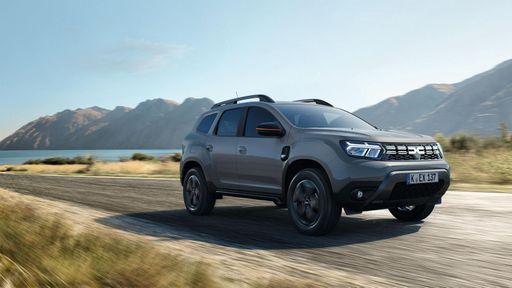 @ dacia-presse.de
@ dacia-presse.de
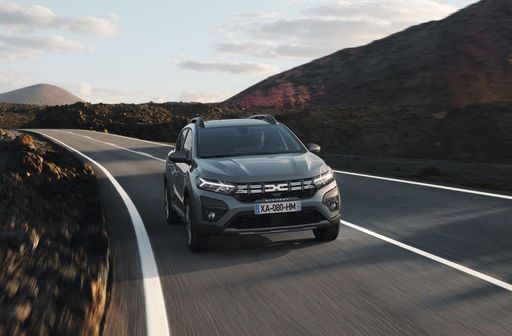 @ dacia-presse.de
@ dacia-presse.de
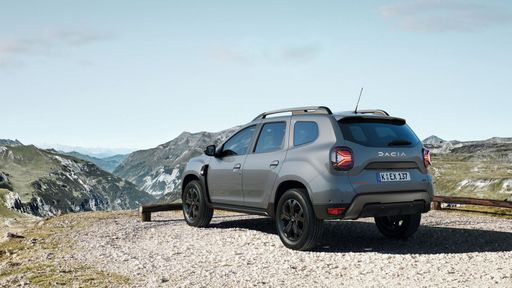 @ dacia-presse.de
@ dacia-presse.de
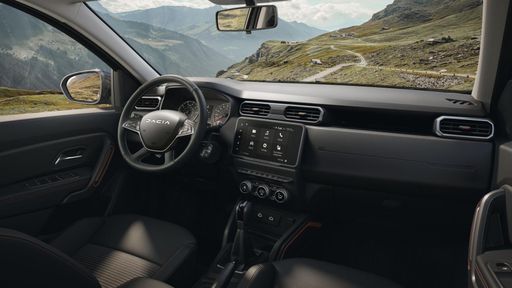 @ dacia-presse.de
@ dacia-presse.de
Hyundai IONIQ 5
The Hyundai IONIQ 5 showcases a bold and futuristic design that captures attention with its striking facade and sharp lines. This electric vehicle offers an impressive blend of performance and efficiency, making it a compelling choice for environmentally conscious drivers. Inside, the spacious and tech-forward interior provides a comfortable and engaging driving experience for both driver and passengers.
details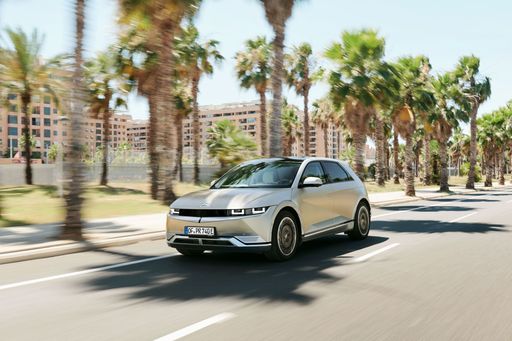 @ hyundai.news
@ hyundai.news
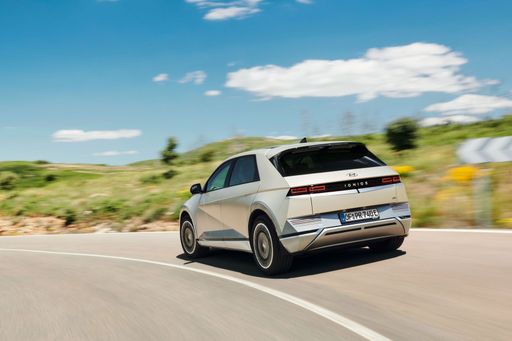 @ hyundai.news
@ hyundai.news
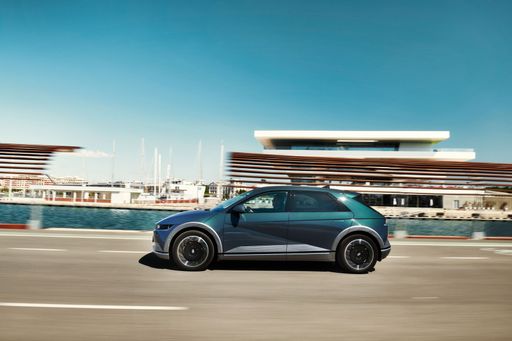 @ hyundai.news
@ hyundai.news
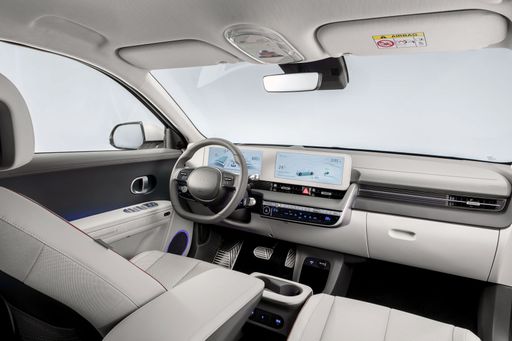 @ hyundai.news
@ hyundai.news
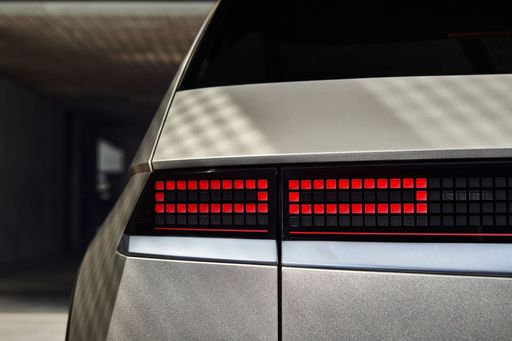 @ hyundai.news
@ hyundai.news

|

|
|
|
|
Costs and Consumption |
|
|---|---|
|
Price
16300 - 24800 £
|
Price
37600 - 64200 £
|
|
Consumption L/100km
5 - 8.1 L
|
Consumption L/100km
-
|
|
Consumption kWh/100km
-
|
Consumption kWh/100km
15.6 - 21.2 kWh
|
|
Electric Range
-
|
Electric Range
440 - 570 km
|
|
Battery Capacity
0.60 kWh
|
Battery Capacity
63 - 84 kWh
|
|
co2
114 - 147 g/km
|
co2
0 g/km
|
|
Fuel tank capacity
49 - 55 L
|
Fuel tank capacity
-
|
Dimensions and Body |
|
|---|---|
|
Body Type
SUV
|
Body Type
SUV
|
|
Seats
5
|
Seats
5
|
|
Doors
5
|
Doors
5
|
|
Curb weight
1351 - 1465 kg
|
Curb weight
1955 - 2275 kg
|
|
Trunk capacity
430 - 517 L
|
Trunk capacity
480 - 520 L
|
|
Length
4343 mm
|
Length
4655 - 4715 mm
|
|
Width
1813 mm
|
Width
1890 - 1940 mm
|
|
Height
1656 - 1661 mm
|
Height
1585 - 1605 mm
|
|
Payload
414 - 430 kg
|
Payload
385 - 530 kg
|
Engine and Performance |
|
|---|---|
|
Engine Type
LPG, Full Hybrid, Petrol MHEV
|
Engine Type
Electric
|
|
Transmission
Manuel, Automatic
|
Transmission
Automatic
|
|
Transmission Detail
Schaltgetriebe, Automatisiertes Schaltgetriebe
|
Transmission Detail
-
|
|
Drive Type
Front-Wheel Drive, All-Wheel Drive
|
Drive Type
Rear-Wheel Drive, All-Wheel Drive
|
|
Power HP
91 - 140 HP
|
Power HP
170 - 609 HP
|
|
Acceleration 0-100km/h
9.9 - 14 s
|
Acceleration 0-100km/h
3.5 - 8.5 s
|
|
Max Speed
160 - 180 km/h
|
Max Speed
185 - 260 km/h
|
|
Torque
160 - 230 Nm
|
Torque
350 - 740 Nm
|
|
Number of Cylinders
3 - 4
|
Number of Cylinders
-
|
|
Power kW
67 - 104 kW
|
Power kW
125 - 448 kW
|
|
Engine capacity
999 - 1598 cm3
|
Engine capacity
-
|
General |
|
|---|---|
|
Model Year
2024 - 2025
|
Model Year
2024
|
|
CO2 Efficiency Class
D, C, E
|
CO2 Efficiency Class
A
|
|
Brand
Dacia
|
Brand
Hyundai
|
Dacia Duster
Discovering the Duster: Dacia's Affordable SUV
The Dacia Duster has long been a go-to choice for those seeking an affordable yet competent SUV. Known for its robust design and versatility, the new 2024 model year offers even more options to fit a variety of needs. Let's delve into the technical details and innovative aspects that set the Duster apart.
Engine Diversity: Tailoring to Your Needs
The Dacia Duster doesn't disappoint when it comes to engine variety. With options ranging from Gas and Voll-Hybrid to Benzin Mild-Hybrid, there's something for everyone. The engine power spans from 91 to 140 PS, providing levels of performance suited to different driving styles. Notably, the hybrid options are a nod to the growing demand for more eco-friendly vehicles while still maintaining affordability.
Efficiency and Performance in Harmony
Efficiency is a key highlight of the Duster lineup. Fuel consumption rates from 5 to 8.1 litres per 100 km make it a great choice for budget-conscious drivers. Coupled with acceleration times ranging from 9.9 to 14 seconds for 0-100 km/h, the Duster provides a balanced blend of economy and performance.
Precision in Design: Dimensions and Interior Space
The Dacia Duster stands at 4,343 mm in length, 1,813 mm in width, and height varies between 1,656 to 1,661 mm. These dimensions create an ample interior, comfortably seating five passengers with a boot capacity ranging from 430 to 517 litres. This is further enhanced with the different trim levels such as Essential, Expression, Extreme, and Journey, each offering various features.
Advanced Drivetrain Options
Dacia has always been keen on providing choice in drivetrain configurations to cater to a wider audience. The Duster is available with both front-wheel and all-wheel drive options, powered by either a manual or automatic transmission. This flexibility ensures that the Duster can handle both urban commutes and off-road adventures with equal competence.
Technical Specifications: A Deep Dive
The Dacia Duster is equipped with a variety of technical features that ensure a smooth driving experience. It features a range of torque outputs from 160 to 230 Nm, depending on the model. The vehicle's weight varies between 1,351 and 1,465 kg, which aids in its adept handling and stability. Moreover, the Duster meets modern safety expectations with CO2 emissions ranging from 114 to 147 g/km. The SUV's CO2-Effizienzklasse spans from D to E, reflecting its environmental considerations.
Conclusion: A Solid Choice in the SUV Market
The Dacia Duster remains a solid choice for drivers seeking an SUV that combines affordability, efficiency, and versatility. With its wide range of configurations and technical prowess, it continues to be a competitive player in the SUV segment. Whether you're after fuel efficiency, a bit more power, or the capability of off-road adventures, the Duster has you covered.
Hyundai IONIQ 5
Introducing the Hyundai IONIQ 5: A New Era in Electric Mobility
The Hyundai IONIQ 5 is a revolutionary addition to the electric car market, blending futurist aesthetics with ingenious technological features. As part of Hyundai's all-electric lineup, the IONIQ 5 exudes a refreshing approach to sustainable motoring, offering a blend of power, efficiency, and innovation that is set to transform everyday driving.
A Futuristic Design
The IONIQ 5 sets new standards in automotive design with its distinctive silhouette. Its clamshell bonnet and pixelated LED light design form a unique visual signature, evoking a sense of modernity and advancement. Built on Hyundai's Electric-Global Modular Platform (E-GMP), this SUV heralds a new direction for electric vehicles, serving both form and function with a flat floor that maximises interior space.
Performance and Efficiency
The Hyundai IONIQ 5 offers a variety of powertrains to cater to different driving preferences. Depending on the model, power output ranges from 170 PS to a staggering 609 PS, with corresponding torque between 350 Nm and 740 Nm. These configurations enable a brisk acceleration capability, reaching 0-100 km/h in as little as 3.5 seconds.
The car’s battery options of 63 kWh and 84 kWh provide flexibility between range and performance. The efficiency of the IONIQ 5 is admirable, with a consumption ranging from 15.6 to 21.2 kWh/100km, ensuring the capability to travel up to 570 km on a single charge.
Innovative Technology
The IONIQ 5 isn't just about efficient propulsion; it's laden with cutting-edge technology that enhances the driving experience. The vehicle includes an ultra-fast charging capability, able to reclaim 80% of the battery life within just 18 minutes. This is complemented by Vehicle-to-Load (V2L) technology, which turns the IONIQ 5 into a power source to charge devices or even other electric vehicles.
Comfort and Convenience
Inside, the IONIQ 5 continues to impress with a spacious and flexible cabin that maximises comfort and utility. Its minimalist dashboard, dual 12.3-inch screens for infotainment and digital instrument cluster, and extensive use of eco-friendly materials contribute to a serene driving environment.
Safety Meets Innovation
Hyundai has equipped the IONIQ 5 with an array of advanced driver assistance systems. These include features such as Smart Cruise Control, Highway Driving Assist, and Remote Smart Parking Assist, ensuring that safety is paramount without sacrificing convenience.
The Future of Sustainable Driving
With a CO2 efficiency class of A and zero emissions, the Hyundai IONIQ 5 signifies a shift towards more sustainable driving practices. Its blend of technology, performance, and aesthetic appeal positions it as a pivotal player in the electric vehicle market, paving the way for a cleaner, greener future in automotive design.
The prices and data displayed are estimates based on German list prices and may vary by country. This information is not legally binding.
